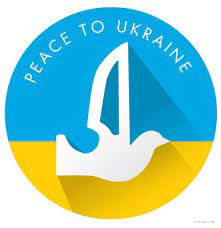Many of us are praying for peace in Ukraine today, whether in general terms for the country as a whole or for friends, relations and Jewish communities who live there. Does Pirkei Avot have any guidance for us in this regard?
Rabbi Shimon ben Netanel (Avot 2:18) gives the apparently obvious and unnecessary advice to be careful when praying. He adds that, when we do pray our prayers should not be routine. Rather, they should be made with feelings and with compassion. Isn't this what prayer is supposed to be, so why bother saying this at all?
For people whose prayers are spontaneous and are not tied to any specific verbal format, this advice is relatively easy to implement. It is much more of a challenge, though, for the Jew who prays daily in accordance with the ancient, well-tried formula of the Amidah, a set of standard blessings and requests that goes back to the early days of the Second Temple period.
The Amidah contains a standard prayer for peace which is its final blessing (the last of 19 on regular weekdays, 7 on Shabbat and most festivals). It is also possible to insert personal prayers at certain points within the template and immediately after its conclusion. The challenge is to have the right thoughts in one's head and the right feelings in one's heart when saying the words provided and of remembering to add one's own prayers when one gets to the places provided for doing so.
By way of example, in the middle of the Amidah there is a prayer for the healing of those who are ill. A special provision exists for mentioning an ailing person by name. Many of us -- particularly since the onset of Covid -- have our own lists of names to pray for. Because this prayer is recited three times daily, it is easy to go on to autopilot and recite this blessing in its entirety before remembering to add a new name to those already prayed for. Later, one becomes practised in adding that name so it is no longer forgotten. Eventually, the mention of that name has become such a deeply ingrained habit that it is hard to remember NOT to pray for that person's recovery once they have either recovered or passed away.
Rabbi Shimon ben Netanel recognises this tendency, which is why he cautions us to pray with compassion, not to mention passion. This requires a degree of awareness of what we say and what we pray for that surpasses the average degree of attention to the things we say and do in the course of the day.
I have added my own prayer for the safely and well-being of everyone in Ukraine, and I am keeping in mind my understanding of its Jewish inhabitants, their anxieties and their state of mind at this time. The challenge for me will be to keep my thoughts fresh and focused on them both during the current conflict and beyond it.
May God grant them safety, security and peace of mind.
